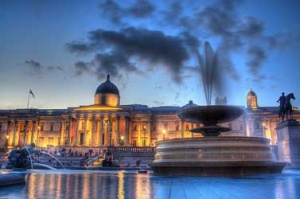Optimism grows at top UK attractions

The UK’s top visitor attractions remain largely optimistic about the immediate future, with 82 per cent expecting to maintain or increase visitor figures over the coming year.
This is up from just 60 per cent during 2009, according to figures released by the Association of Leading Visitor Attractions (ALVA) today.
Following the economic downturn – and subsequent staycation trend – visitor numbers were up at the vast majority of UK attractions; with numbers up at the country’s foremost museums, galleries, heritage sites, cathedrals, gardens, zoos and leisure parks by a median of 10.9 per cent.
According to figures released by the Office for National Statistics (ONS), the estimated seasonally adjusted number of visits abroad fell by six per cent in the three months to December 2009; with British holidaymakers taking just 13.9 million trips overseas.
The UK also attracted a greater number of overseas visitors in 2009, with guests drawn by the weak pound.
ADVERTISEMENT
The British Museum remained the most visited attraction in the country, closely followed by the National Galley, Tate Modern and Natural History Museum; all of which have free entry.
Top among the paid for attractions was the Tower of London, which saw a total of 2.3 million guests in 2009 – an increase of 11 per cent on the previous year.
It was also a remarkably successful year for the Home of Charles Darwin in Kent, which saw numbers up by 198 per cent on the two-hundredth anniversary of the naturalist’s birth.
Kenilworth Castle in Warwickshire and Calke Abbey, Leicestershire, as saw visitor numbers increase by 58 and 93 per cent respectively; placing them among the strongest performers in the country.
In contrast, attractions in Liverpool saw a sharp decline, reflecting the end of the city’s status as a European Capital of Culture.
Electioneering
ALVA members were asked about which pressing needs the incoming government should address, to ensure tourism continues to provide a much-needed boost to the UK economy.
By far the most important change sought by leading attractions was a move toward incentivising tourists to visit and stay in Britain, rather than taxing tourists.
This could include a reversal of controversial changes to Air Passenger Duty (APD), example.
Members would also like to see a reduction in VAT rates on admission tickets, and enhanced government funding to enable VisitBritain to promote the UK to potential tourists abroad.
“The tourism industry played a vital role in Britain’s economy last year, with leading attractions working hard to maintain visitor figures and revenue in a challenging fiscal environment,” said ALVA director Robin Broke.
“As the political parties prepare for the general election, they should consider how best to help the industry maximise the revenue it can generate and the additional jobs it can create.”

